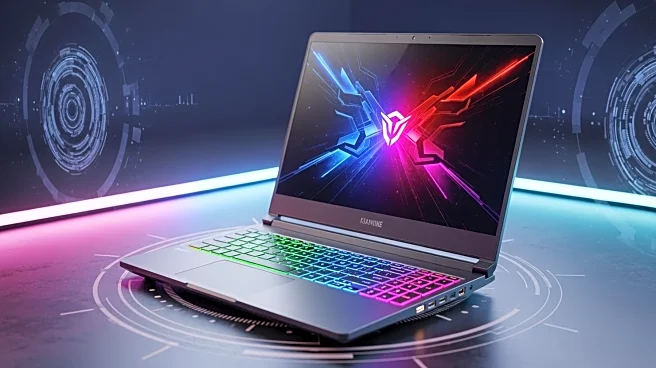What's Happening?
The HP Omen 16 gaming laptop has been reviewed for its performance and design, featuring an AMD Ryzen 7 processor and Nvidia GeForce RTX 5060 graphics. Priced at $1,800, the laptop is noted for its competitive
1080p gaming performance, attractive design, and long battery life. However, it is criticized for its all-plastic build, average audio output, and lack of Thunderbolt 4 or USB4 ports. The laptop includes a 16-inch display with a resolution of 1,920x1,200 pixels, which is adequate for gaming but less appealing for general use. The Omen 16 also offers RGB keyboard backlighting and internal expansion options for RAM and storage.
Why It's Important?
The HP Omen 16's performance and features position it as a strong contender in the midrange gaming laptop market. Its use of Nvidia's RTX 5060 graphics card highlights the ongoing demand for high-performance GPUs in gaming devices. The laptop's competitive pricing, especially when discounted, makes it an attractive option for gamers seeking powerful hardware without the premium price tag. This development underscores the importance of balancing performance, design, and cost in the gaming industry, influencing consumer choices and market competition.
What's Next?
Potential buyers are advised to monitor the HP Omen 16 for price drops, as discounts can significantly enhance its value proposition. The laptop's performance in gaming benchmarks suggests it will remain relevant for current gaming demands. As the market evolves, HP may introduce updates or new models to address the current model's shortcomings, such as its plastic build and average display quality. Competitors like Lenovo and Alienware may also respond with their own offerings, further intensifying competition in the gaming laptop segment.
Beyond the Headlines
The HP Omen 16's design choices, such as the all-plastic build, reflect broader trends in manufacturing cost management and consumer expectations for gaming laptops. The emphasis on RGB lighting and customizable features indicates a cultural shift towards personalization in gaming hardware. Additionally, the laptop's long battery life challenges the stereotype of gaming laptops as power-hungry devices, potentially influencing future design priorities in the industry.










